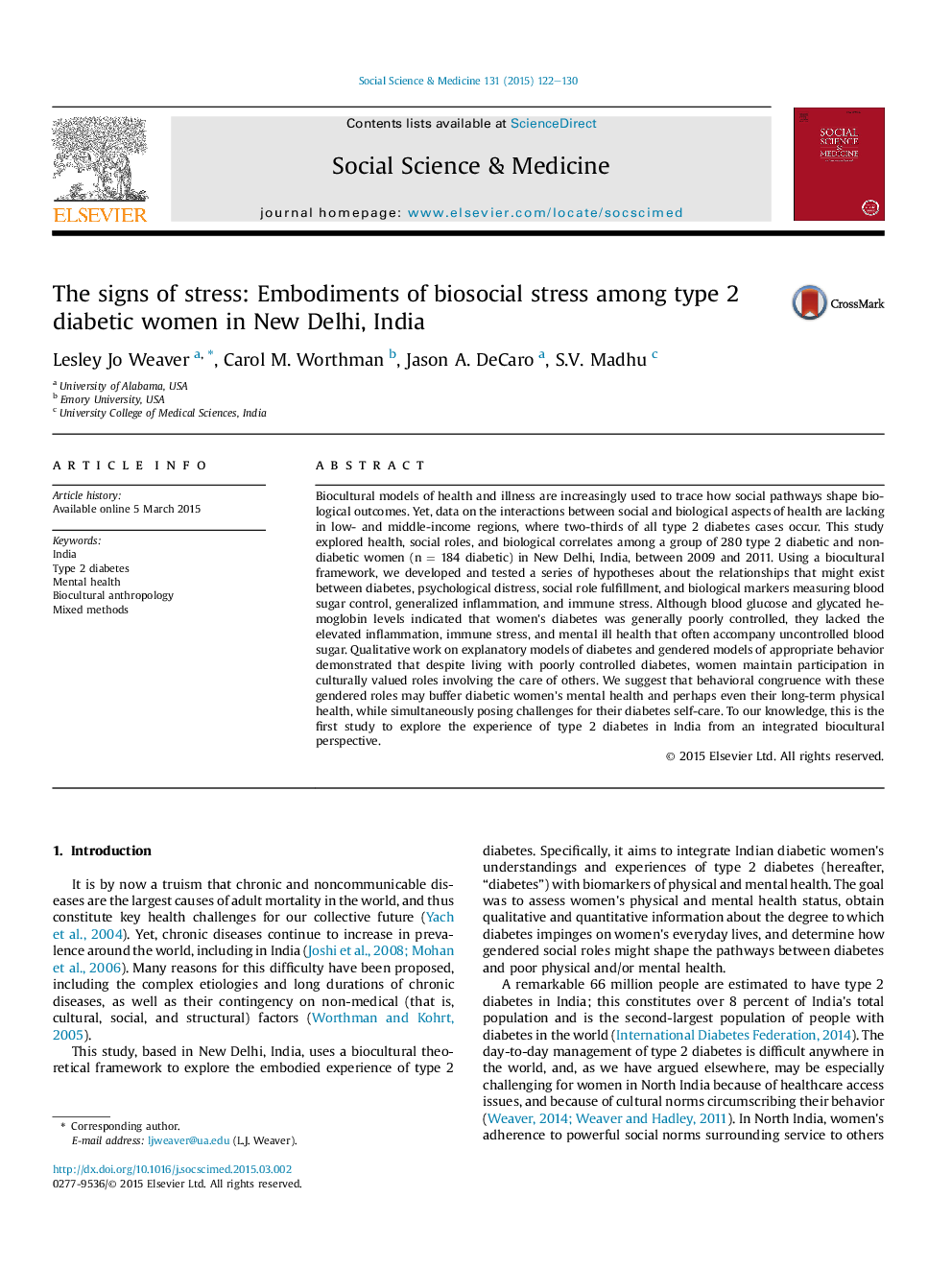| Article ID | Journal | Published Year | Pages | File Type |
|---|---|---|---|---|
| 7333054 | Social Science & Medicine | 2015 | 9 Pages |
Abstract
Biocultural models of health and illness are increasingly used to trace how social pathways shape biological outcomes. Yet, data on the interactions between social and biological aspects of health are lacking in low- and middle-income regions, where two-thirds of all type 2 diabetes cases occur. This study explored health, social roles, and biological correlates among a group of 280 type 2 diabetic and non-diabetic women (n = 184 diabetic) in New Delhi, India, between 2009 and 2011. Using a biocultural framework, we developed and tested a series of hypotheses about the relationships that might exist between diabetes, psychological distress, social role fulfillment, and biological markers measuring blood sugar control, generalized inflammation, and immune stress. Although blood glucose and glycated hemoglobin levels indicated that women's diabetes was generally poorly controlled, they lacked the elevated inflammation, immune stress, and mental ill health that often accompany uncontrolled blood sugar. Qualitative work on explanatory models of diabetes and gendered models of appropriate behavior demonstrated that despite living with poorly controlled diabetes, women maintain participation in culturally valued roles involving the care of others. We suggest that behavioral congruence with these gendered roles may buffer diabetic women's mental health and perhaps even their long-term physical health, while simultaneously posing challenges for their diabetes self-care. To our knowledge, this is the first study to explore the experience of type 2 diabetes in India from an integrated biocultural perspective.
Related Topics
Health Sciences
Medicine and Dentistry
Public Health and Health Policy
Authors
Lesley Jo Weaver, Carol M. Worthman, Jason A. DeCaro, S.V. Madhu,
